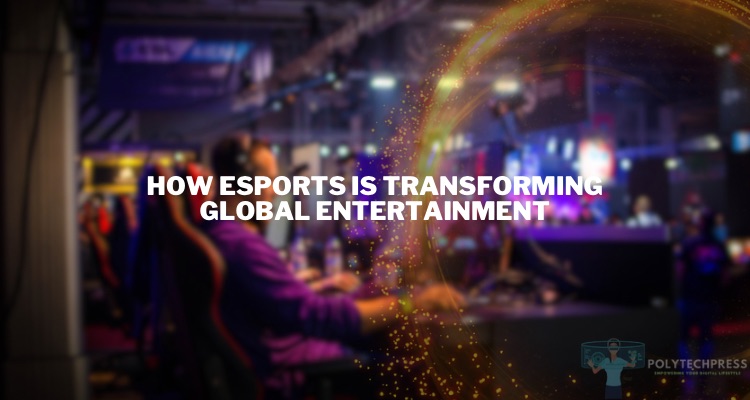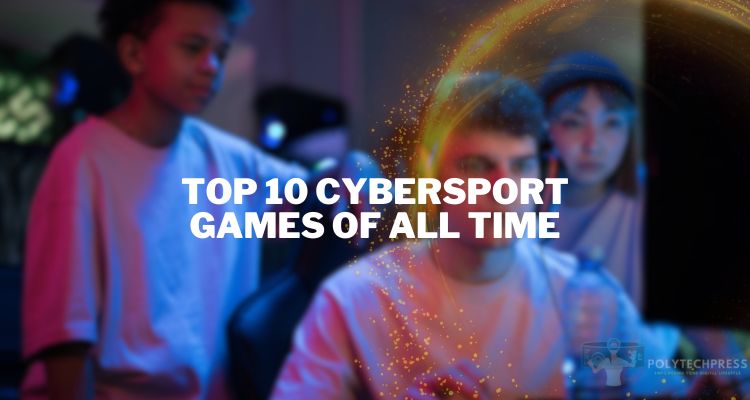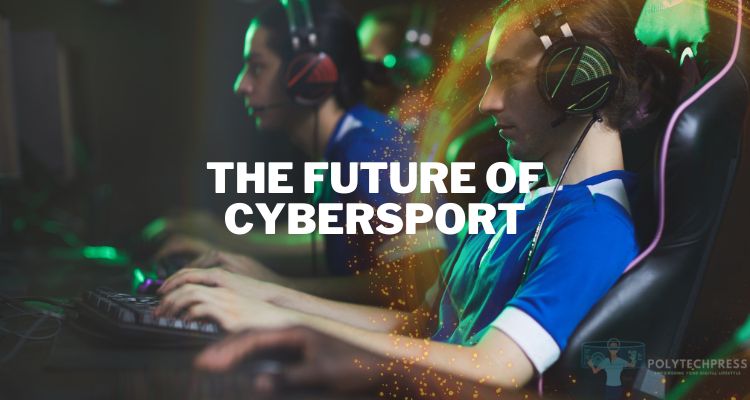How Esports is Transforming Global Entertainment
Esports, short for electronic sports, refers to competitive video gaming where players and teams compete in organized, multiplayer video game tournaments. What began as a niche hobby within small, dedicated communities has exploded into a global phenomenon. The early days of esports were marked by small-scale competitions in arcades and local gatherings, but the rise of broadband internet, advanced gaming technology, and social media has propelled esports into the mainstream. Today, esports boasts millions of viewers, professional players, and a massive industry built around it.
The esports industry has seen exponential growth, with global revenues expected to surpass $1 billion in the near future. Esports tournaments, like the League of Legends World Championship and The International (Dota 2), attract audiences that rival traditional sports events, both in terms of attendance and online viewership. The impact of esports is undeniable, influencing everything from advertising strategies to youth culture.
The Cultural Shift in Entertainment Consumption

Esports’ meteoric rise reflects a broader cultural shift in entertainment consumption, particularly among younger generations. Traditional media, such as television and film, have seen a decline in viewership as digital entertainment platforms like YouTube, Twitch, and Netflix capture the attention of a more tech-savvy audience. This audience is not just passively consuming content but actively engaging with it, whether through live streaming, social media interaction, or participation in online communities.
Esports embodies this shift perfectly. It’s a form of entertainment that is inherently digital, interactive, and community-driven. Fans don’t just watch esports; they participate in the culture by following their favorite teams and players on social media, creating fan art, and even aspiring to become professional gamers themselves. This active engagement sets esports apart from traditional forms of entertainment and is a key driver of its global influence.
This article aims to explore how esports is not just another entertainment trend but a transformative force reshaping the global entertainment landscape. By examining the integration of esports into mainstream media, its economic impact, its cultural significance, and the challenges and opportunities it faces, we can better understand the profound ways in which esports is influencing the future of entertainment.
The Integration of Esports into Mainstream Media
The inclusion of esports on traditional media platforms like ESPN and Fox Sports is a significant milestone in its journey to mainstream acceptance. Initially hesitant, major networks now recognize the growing demand for esports content. Esports events have been broadcast on prime-time television, exposing a broader audience to the competitive gaming scene. For example, ESPN’s coverage of the Overwatch League and the NBA 2K League has brought esports into millions of homes, legitimizing it as a form of entertainment comparable to traditional sports.
These broadcasts have not only increased viewership but have also changed public perception of esports. What was once seen as a niche interest for gamers is now recognized as a legitimate sport with professional athletes, teams, and a dedicated fanbase. This shift in perception is crucial for the continued growth and acceptance of esports in the mainstream.
Streaming Platforms as the New Frontier
While traditional media has played a role in popularizing esports, streaming platforms like Twitch, YouTube Gaming, and Facebook Gaming have been the true catalysts for its global expansion. These platforms allow fans to watch live gameplay, interact with streamers in real-time, and engage with a community of like-minded individuals. Twitch, in particular, has become synonymous with esports, offering a platform where professional gamers, casual players, and fans can connect.
Streaming has democratized content creation and viewership, enabling anyone with a computer and an internet connection to participate in the esports ecosystem. Influencers and content creators have also played a significant role in expanding esports’ reach. By streaming their gameplay, sharing tips and tricks, and interacting with their followers, these personalities have built loyal fanbases that contribute to the growth of esports.
Esports and Cross-Media Collaborations
Esports has also begun to blur the lines between different forms of entertainment through cross-media collaborations. These collaborations involve partnerships between esports organizations and other sectors, such as music, film, and fashion. For example, the collaboration between the popular game Fortnite and the music industry has led to in-game concerts featuring artists like Travis Scott and Marshmello, which attracted millions of viewers worldwide.
These cross-media events not only increase exposure for esports but also create new and exciting ways for fans to engage with their favorite games and artists. By pushing the boundaries of traditional entertainment, esports is paving the way for a more integrated and immersive entertainment experience.
The Economic Impact of Esports on the Entertainment Industry
Esports has quickly become a lucrative industry, generating significant revenue through various streams, including sponsorships, media rights, merchandise sales, and in-game purchases. Sponsorships are a major revenue driver, with brands from both gaming and non-gaming sectors investing heavily in esports. Companies like Coca-Cola, Intel, and Nike have recognized the value of reaching the esports audience, which is predominantly young, tech-savvy, and highly engaged.
Media rights deals between esports leagues and streaming platforms also contribute to the industry’s financial growth. These deals, similar to those in traditional sports, provide leagues and tournaments with steady income while offering platforms exclusive content to attract viewers. Additionally, the sale of branded merchandise, from team jerseys to in-game skins, has become a significant revenue stream, further monetizing the fanbase.
Job Creation and New Career Opportunities
The rapid expansion of esports has also led to the creation of new jobs and career opportunities within the industry. Beyond the players themselves, there is a growing demand for roles such as coaches, analysts, event organizers, marketers, and content creators. Esports has spurred the growth of related industries, such as gaming hardware manufacturing, streaming technology, and digital marketing.
Furthermore, the rise of esports has influenced education, with universities offering esports programs and scholarships to attract talented gamers. These programs not only focus on gameplay but also cover aspects like business management, marketing, and media production, preparing students for a variety of careers within the esports ecosystem.
Esports as a Driver of Technological Innovation
Esports has been a significant driver of technological innovation, particularly in the areas of streaming technology, virtual reality (VR), and augmented reality (AR). The demand for high-quality, low-latency streaming has led to advancements in internet infrastructure and video compression technologies, benefiting not just esports but the broader digital entertainment industry.
Moreover, esports has influenced the development of gaming hardware and software. Companies are constantly pushing the boundaries of what’s possible, creating faster processors, more responsive peripherals, and more immersive gaming experiences. Innovations in VR and AR are also being explored in esports, offering the potential for entirely new ways to experience games and competitions.
Esports and Betting
The integration of betting into esports has added a new dimension to the industry, mirroring the betting culture that exists in traditional sports. Esports betting allows fans to wager on the outcomes of matches, tournaments, and even individual player performances, providing an additional layer of excitement and engagement. Platforms like gg bets have emerged as reliable betting partners, offering a range of betting options across various esports titles.
The annual turnover of capital in the field of esports betting is substantial, with billions of dollars being wagered each year. This influx of capital has further legitimized esports as a competitive industry, attracting more investment and interest from both traditional betting companies and new entrants.
Esports and Global Cultural Influence

Esports has become a global cultural phenomenon, attracting a diverse, international audience that transcends geographical boundaries. Unlike traditional sports, which are often tied to specific countries or regions, esports is inherently global. Fans from different parts of the world can connect over their shared love for games like League of Legends, Counter-Strike, and Fortnite, creating a unique, shared culture.
This global appeal is particularly strong among younger generations, who see esports not just as a form of entertainment but as a lifestyle. Esports has influenced everything from fashion and music to language and social norms, shaping modern youth culture in ways that few other entertainment forms have.
Esports and Social Interaction
One of the key aspects of esports is its emphasis on social interaction. Unlike traditional forms of entertainment, which are often consumed passively, esports is highly interactive. Fans engage with the content, participate in online communities, and even take part in amateur competitions. This social aspect has helped build strong, vibrant communities around specific games, teams, and players.
Esports communities often extend beyond the digital realm, with fans meeting up at live events, conventions, and tournaments. These interactions have created new forms of social identity, where individuals connect not based on geography or nationality, but on shared interests and passions.
The Role of Esports in Entertainment Convergence
Esports is at the forefront of entertainment convergence, where different forms of media and entertainment blend together to create new experiences. This convergence is evident in events that combine esports with traditional sports, music, and even fashion. For instance, events like the NBA 2K League and FIFA eWorld Cup bring together the worlds of esports and traditional sports, attracting fans from both communities.
The future of entertainment convergence looks promising, with esports playing a central role in the creation of hybrid events that offer something for everyone. These events are likely to become more common as the lines between different forms of entertainment continue to blur.
Esports and Betting
Esports betting has rapidly become one of the most popular and lucrative facets of the esports industry. Betting on esports operates similarly to traditional sports betting, where bettors place wagers on the outcomes of matches, tournaments, or specific in-game events. However, given the unique nature of esports, the betting market offers a diverse range of opportunities. Bettors can wager on not just the final score or winner but also on specific in-game achievements, such as the first team to reach a certain objective, individual player performance, or even the occurrence of specific in-game events.
GGBet has emerged as one of the most reliable and recognized platforms in the esports betting landscape. Catering specifically to esports enthusiasts, GGBet offers a wide array of betting options across numerous esports titles, including popular games like CS:GO, Dota 2, League of Legends, and more. GGBet distinguishes itself through its user-friendly interface, comprehensive match coverage, and competitive odds. Furthermore, the platform is known for its security measures, ensuring a safe and trustworthy environment for its users.
The annual turnover of capital in the field of esports betting is staggering, reflecting the massive growth and interest in this market. It is estimated that the global esports betting market could reach billions of dollars in the coming years. This influx of capital has not only contributed to the overall growth of the esports industry but has also attracted more investors and stakeholders, further legitimizing esports as a major player in the global entertainment economy. The growth of esports betting underscores the deep engagement and passion of the esports fanbase, which continues to drive the industry forward.
The Challenges and Opportunities in Esports’ Rise
Despite its rapid growth, the esports industry faces several challenges. One of the biggest concerns is market saturation, with an increasing number of games, tournaments, and leagues vying for attention. This saturation could lead to a fragmented audience and make it difficult for new entrants to gain traction.
Player burnout is another significant issue. The intense pressure to perform, combined with the long hours of practice required, can take a toll on players’ physical and mental health. Addressing these concerns is crucial for the sustainability of the industry.
Regulatory challenges also pose a threat, as the global nature of esports complicates the development of standardized rules and governance. Ensuring fair play, combating cheating, and addressing issues like match-fixing will require coordinated efforts from organizations around the world.
Opportunities for Growth and Expansion
Despite these challenges, there are numerous opportunities for growth and expansion in the esports industry. One of the most promising areas is the potential for esports to enter new markets, particularly in regions where gaming is still gaining popularity. Emerging markets like India, Brazil, and Southeast Asia offer vast, untapped audiences for esports.
Mobile esports is another emerging trend, with games like PUBG Mobile and Free Fire attracting millions of players and viewers worldwide. The accessibility of mobile gaming has the potential to bring esports to an even broader audience, particularly in regions where traditional gaming setups are less common.
New technologies, such as blockchain and NFTs, also present exciting opportunities for esports. These technologies could enable new forms of ownership, monetization, and engagement, driving the next phase of growth in the industry.
The Future of Esports in Global Entertainment
Looking ahead, the future of esports in global entertainment is bright. As esports continues to integrate into mainstream entertainment, it has the potential to redefine traditional entertainment models. The evolving relationship between esports, traditional media, and new forms of content will likely lead to innovative experiences that combine the best of all worlds.
Esports’ influence will also extend beyond the entertainment industry, shaping everything from education and technology to social norms and cultural trends. As the industry matures, it will continue to push the boundaries of what entertainment can be, offering new and exciting ways for people to connect, compete, and create.
Wrap Up
Esports has emerged as a transformative force in the global entertainment landscape, influencing everything from media and technology to culture and economics. Its rise reflects broader shifts in entertainment consumption, driven by changing consumer behaviors and the proliferation of digital platforms. By integrating with mainstream media, driving technological innovation, and creating new cultural phenomena, esports is reshaping the way we experience entertainment.
As esports continues to grow, its impact on global entertainment will only deepen. The industry’s ability to adapt to new technologies, enter new markets, and forge cross-media collaborations will determine its future trajectory. Esports has the potential to not only coexist with traditional entertainment but to redefine it, creating a more integrated and immersive entertainment ecosystem.
Recognizing esports as a legitimate and influential sector in global entertainment is crucial for its continued growth and success. The industry’s rapid expansion presents opportunities for innovation, investment, and cultural exchange. As esports continues to evolve, it will play a central role in shaping the future of entertainment, offering new ways for people around the world to connect, compete, and create lasting memories.






